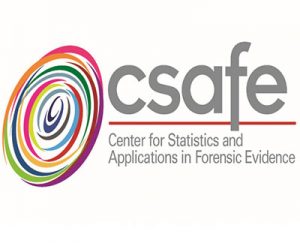This week, we will ask commentators to weigh in on the Supreme Court’s per curiam ruling in Kulbicki. One jumping off point is a comparison to last year’s per curiam opinion in Hinton v. Alabama, another case examining lawyer’s failure to adequate develop forensic evidence at trial. The outcome was different. In Hinton, a death penalty case, the Court found the lawyer to have been constitutionally ineffective. (On remand, Hinton’s conviction was vacated).
From the beginning, the tone in the two per curiam opinions could not have been more different. In Hinton, the Court correctly stated the Strickland v. Washington constitutional standard for ineffective assistance of counsel, as asking “if his trial attorney’s performance falls below an objective standard of reasonableness and if there is a reasonable probability that the result of the trial would have been different absent the deficient act or omission.” In Kulbicki, the Court oddly misstated the standard, as “meaning his errors are ‘so serious’ that he no longer functions as ‘counsel,’ and prejudicial, meaning his errors deprive the defendant of a fair trial.” That description of the Strickland test was at the very least, a casual and imprecise one.
Now, in Hinton, there was both firearms and toolmark analysis, and counsel mistakenly thought that the court would not pay for an expert, so did not ask for one. The Court there emphasized: “The trial attorney’s failure to request additional funding in order to replace an expert he knew to be inadequate because he mistakenly believed that he had received all he could get under Alabama law constituted deficient performance.”
Did counsel in Kulbicki make reasonable investigations and inquiry? We now know that the FBI’s bullet lead analysis was unscientific and flawed – and that it never should have been allowed in court at all. That said, in Hinton, the trial lawyer knew he had a sub-par forensic expert on a key issue and mistakenly thought there was no way to do better for his client. In Kulbicki, perhaps the lawyer had no idea that there was any way to challenge the FBI’s scientific-sounding bullet lead comparison evidence. But that begs the question whether a lawyer should be expected to look into whether the forensics are actually supported by real research.
In Hinton, the Court emphasized: “we have recognized the threat to fair criminal trials posed by the potential for incompetent or fraudulent prosecution forensics experts.” Nowhere did the Court even pay lip service to that threat in Kulbicki, despite the fact that the case did indeed involve a patently unscientific technique, since disavowed and discontinued by the FBI. Instead, the Court emphasized that a 1991 co-authored by the FBI expert testifying in the case would have been difficult for any defense lawyer to even find, and that it did not clearly signal awareness at the FBI that the technique was flawed. Is the unfortunate moral of the story that if a lab hides the flaws in the science for years, that is a good way to prevent post-conviction relief, whose success so often hinges on ineffective assistance of counsel claims?
Perhaps ineffective assistance of counsel claims are not the best way to remedy unscientific evidence in the courts. It is an unfortunately failing of our habeas law, that a convict’s best hope may be to try to blame the defense lawyer for the failings of prosecution experts. Should there be a Brady v. Maryland theory that the unsound underpinnings of this evidence were concealed from the defense? Or a theory that the evidence was fabricated in violation of Napue? Should Maryland courts be empowered to grant relief calling the changed understanding of the science, or lack thereof, constitutes new evidence of innocence? Perhaps more states need to follow the lead of Texas and adopt statutes that permit post-conviction relief for changed understanding of scientific evidence. False facts and unsound science may be most conveniently hung on the ready post-conviction hook of a Strickland claim. But when forensic errors come to light, accountability should be placed squarely on the prosecutors and the forensic analysts who were the purveyors of flawed science.
In Hinton, the Court recognized that “Prosecution experts, of course, can sometimes make mistakes.” When they do, the prosecution and those experts should face the post-conviction consequences.


Leave a Reply